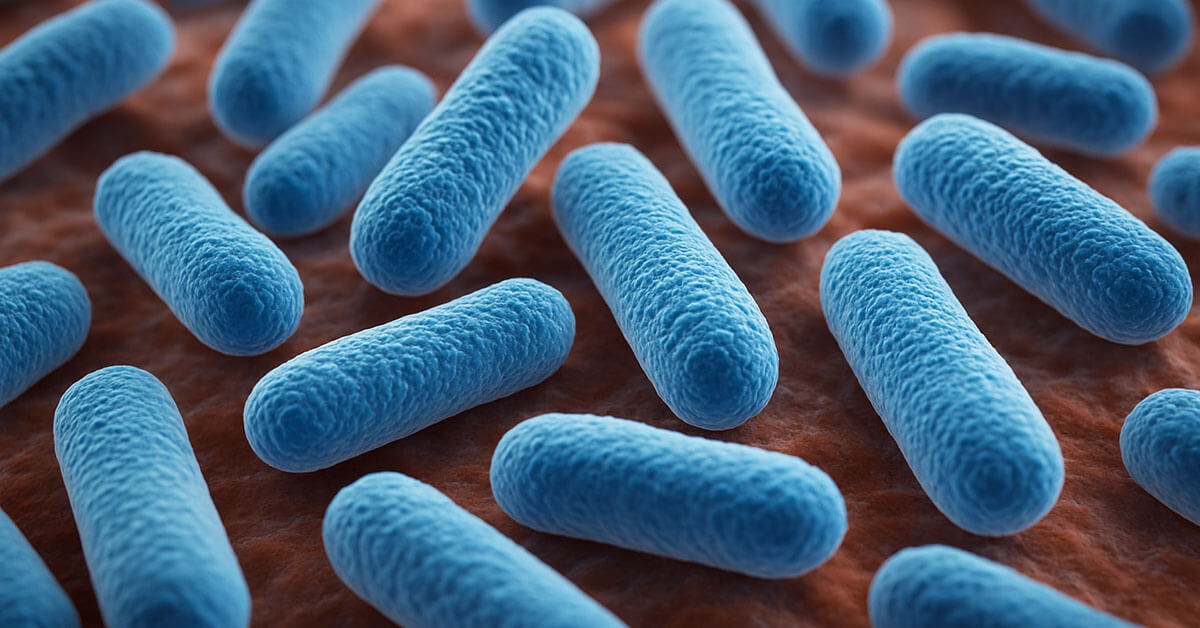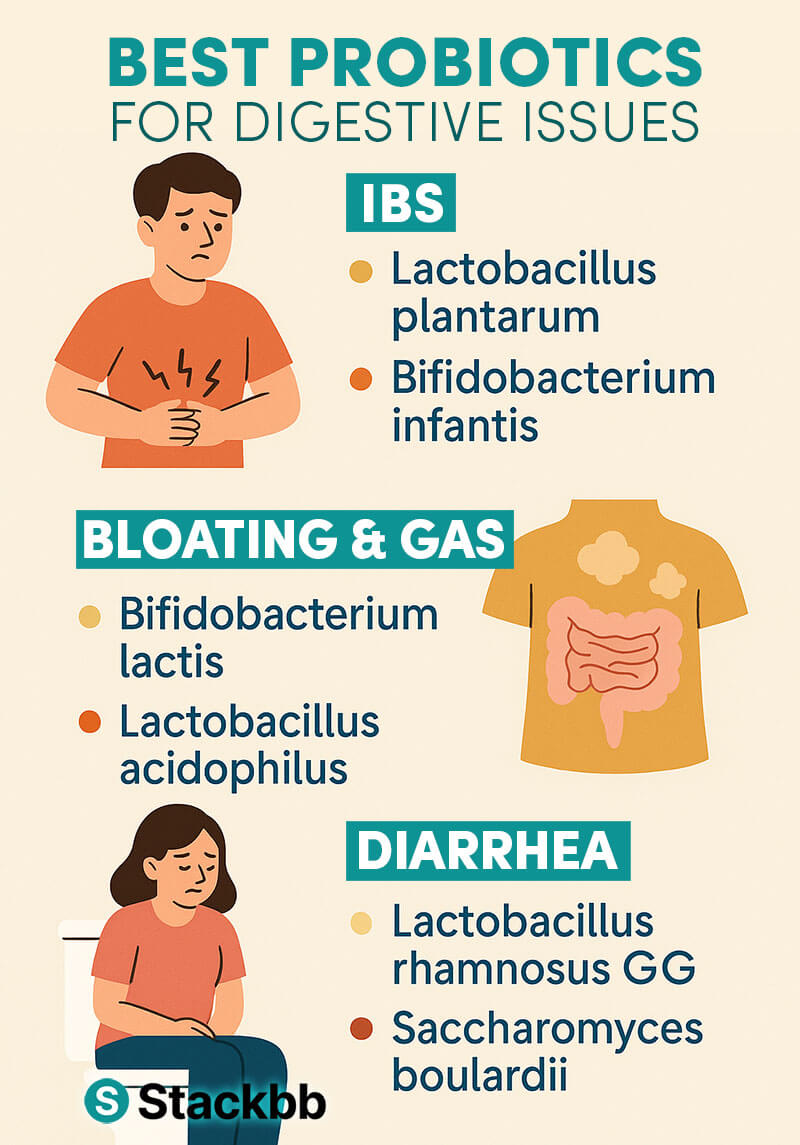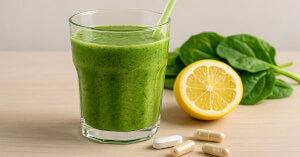
Best Probiotics for Gut Health: Top Strains and How to Choose

Probiotics have exploded in popularity over the last decade, and for good reason. Your gut microbiome, made up of trillions of bacteria, yeasts, and other microorganisms, plays a central role in digestion, immunity, and even mood regulation. But with so many supplements on the market, how do you know which probiotic strains are actually worth your time and money? In this guide, we break down the best probiotics for gut health, ranked by their effectiveness, with practical tips on how to choose the right one for your needs.
Why Gut Health Matters
Your gut is often called your "second brain," and science increasingly confirms the connection between the digestive system and overall health. A balanced microbiome helps break down food, absorb nutrients, keep harmful pathogens in check, and even communicate with your nervous system through what’s known as the gut-brain axis. When your gut is out of balance, issues like bloating, constipation, diarrhea, and even mood swings can follow.
What Are Probiotics?
Probiotics are live microorganisms, mainly bacteria and yeasts, that provide health benefits when consumed in adequate amounts. They work by restoring balance to the gut microbiome. You might see names like *Lactobacillus* or *Bifidobacterium* on supplement labels—these are genera, or large groups, of bacteria. Within them are different strains, each with unique benefits. Think of it like dog breeds: all are dogs, but a husky and a chihuahua don’t behave the same way. Likewise, not all probiotics do the same thing.
Benefits of Probiotics for Gut Health
- Better digestion and nutrient absorption
- Relief from bloating, constipation, and diarrhea
- Strengthened immune system defenses
- Protection of the gut barrier against harmful bacteria
- Potential improvements in mood and mental clarity via the gut-brain connection
The Best Probiotics for Gut Health, Ranked

1. Lactobacillus rhamnosus GG
This strain is the superstar of probiotics, backed by decades of research. Lactobacillus rhamnosus GG helps prevent diarrhea, supports the gut barrier, and boosts immune defenses. It’s especially effective for antibiotic-associated diarrhea and traveler's diarrhea, making it one of the most trusted strains worldwide.
2. Bifidobacterium lactis
Bifidobacterium lactis shines when it comes to digestion. It helps break down fibers that your body can’t digest on its own, turning them into short-chain fatty acids that nourish your gut lining. People often notice less bloating, more regular bowel movements, and a gentler digestion when taking this strain.
3. Saccharomyces boulardii
Unlike the others, this is a probiotic yeast rather than a bacterium. Saccharomyces boulardii is highly effective against diarrhea caused by antibiotics or infections. It restores balance quickly, making it a go-to choice when your gut microbiome takes a sudden hit. Think of it as your emergency gut protector.
4. Lactobacillus plantarum
This strain is a strong defender of your gut barrier. It helps reduce inflammation, protects the intestinal lining, and may ease symptoms of irritable bowel syndrome (IBS). If you struggle with sensitive digestion or gut discomfort, Lactobacillus plantarum can be a game-changer.
5. Bifidobacterium longum
Known for its calming effect on the gut-brain axis, Bifidobacterium longum may reduce stress-related gut issues. Early studies also suggest it can improve mood and reduce anxiety. It’s not just about digestion, but about helping your gut and brain communicate more smoothly.
How to Choose the Right Probiotic
Choosing the right probiotic isn’t about picking the bottle with the highest CFU number. The key is matching the right strain to your specific gut concern. Here’s a breakdown of what works best depending on your situation:
Best probiotics for IBS
For people struggling with Irritable Bowel Syndrome (IBS), Lactobacillus plantarum and Bifidobacterium infantis have shown promise in reducing abdominal pain, bloating, and irregular bowel habits. They help calm inflammation and support a more balanced gut microbiome, making flare-ups less intense.
Best probiotics for bloating and gas
If bloating and excess gas are your main complaints, Bifidobacterium lactis and Lactobacillus acidophilus are excellent choices. These strains improve the digestion of fiber and lactose, reducing fermentation that leads to uncomfortable bloating. Many people notice a lighter, less “puffy” gut after consistent use.
Best probiotics for diarrhea
When diarrhea strikes—especially after antibiotics or travel—Lactobacillus rhamnosus GG and Saccharomyces boulardii are your go-to options. They restore balance quickly, block harmful pathogens, and help your gut recover its natural stability. These are also the most studied strains for preventing antibiotic-associated diarrhea.
Possible Side Effects and Safety
For most people, probiotics are safe and well tolerated. You may experience mild bloating or gas during the first few days, as your microbiome adjusts. This usually goes away quickly. People with severely weakened immune systems should consult a doctor before starting probiotics, as rare infections can occur.
Bottom Line
Not all probiotics are created equal. By focusing on well-researched strains like Lactobacillus rhamnosus GG, Bifidobacterium lactis, and Saccharomyces boulardii, you give your gut the best chance to thrive. The right probiotic can improve digestion, reduce discomfort, and support your overall well-being. Think of it as giving your gut the daily backup team it needs to stay balanced and strong.
Frequently Asked Questions
What probiotics are best for IBS?
For Irritable Bowel Syndrome (IBS), strains like Lactobacillus plantarum and Bifidobacterium infantis have shown benefits in reducing bloating, abdominal pain, and irregular bowel habits. They help calm inflammation and support more balanced digestion.
What probiotics are best for bloating?
If bloating and excess gas are your main concerns, Bifidobacterium lactis and Lactobacillus acidophilus are excellent choices. These strains improve fiber and lactose digestion, reducing fermentation that causes bloating.
What probiotics are best for diarrhea?
For diarrhea—especially after antibiotics or travel—Lactobacillus rhamnosus GG and Saccharomyces boulardii are the top strains. They restore gut balance quickly and protect against harmful bacteria.
Are probiotics safe to take daily?
Yes, most probiotics are safe for daily use. Some people may experience mild bloating or gas at first, but this usually fades as the body adjusts. People with very weak immune systems should consult a doctor first.
How long does it take for probiotics to work?
Some people notice improvements in digestion within a few days, while for others it can take 2–4 weeks. Consistency is key, as probiotics need time to establish themselves in your gut.
This article was originally published on Stackbb, your trusted source for science-based supplement guides.






